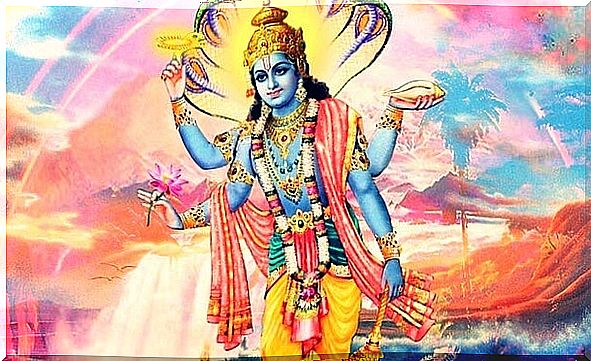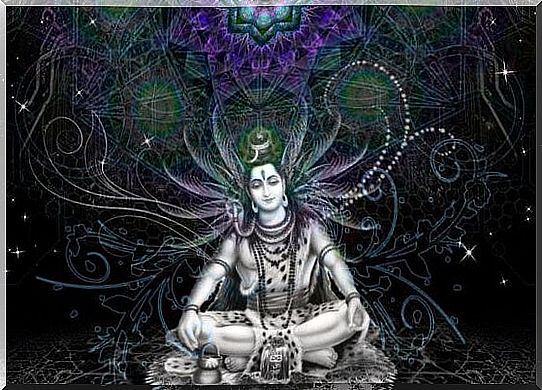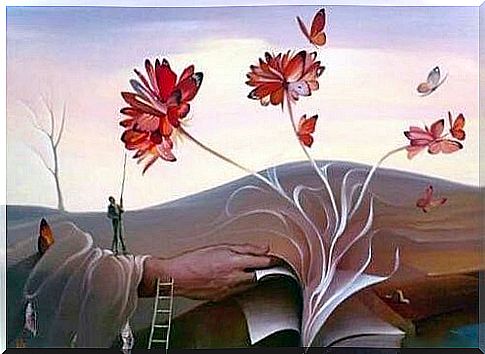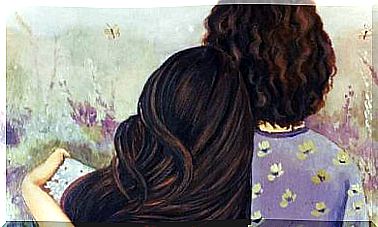7 Wonderful Hindu Proverbs

The Hindu proverbs condense the wisdom of this people, which is ancient and very rich. It is a culture in which mysticism and spirituality have always taken pride of place. Hindu is an absolutely fabulous culture. In it there is an extraordinary mixture of expressions originating in a multitude of different peoples. Hence, its wealth is immense and that it is reflected in all its cultural manifestations, including proverbs.
In Hindu culture there are Arabic, Buddhist, English and Portuguese influences, in addition to the obvious contributions of local cultures. That is why Hindu proverbs become a multi-colored display of perspectives on life. These are seven of them.
7 Hindu proverbs to guide your life and spirit
Here is a compilation of Hindu proverbs. Hopefully they serve you, like so many before you.
1. Adversity in Hindu proverbs
One of the most beautiful Hindu proverbs talks about adversity. It goes like this: ” There is no tree that the wind has not shaken. ” It is a beautiful metaphor to remember that nothing and no one escapes adversity. This is unavoidable.

Bad times are like that wind that shakes the branches and challenges stability. What stands out from the message is the fact that no matter what life we lead, we are always exposed to these attacks. They should not be seen as something alien or strange, because adversity is part of life.
2. A heart at peace
The theme of inner peace is one of the most recurrent in Hindu proverbs. Their religions and their philosophies frequently allude to that state of balance in which tranquility is achieved and peace is sealed with oneself and with the world.
Hence one of the Hindu proverbs says: ” The heart in peace sees a feast in every village. ” It means that everything begins within you. If the spirit is at peace, the outside world looks good. Just as internal wars lead to seeing everything dark.
3. Reading and action
Regarding reading, one of the Hindu proverbs says the following: “ The ignorant are better off by those who read books . To these, those who retain what they have read. To These, those who understand what they read. To these, those who get down to work ”.
The message in this case is oriented to give an equivalent importance to the cultivation of the intellect and to action based on knowledge. Establishes a scale that begins with reading, continues with the assimilation of what has been read and concludes with action based on knowledge.

4. On the generosity of the soul
Most philosophies coincide in defending solidarity and fraternity as supreme values. Those values are what make us a race subject to the same vicissitudes and with a common destiny.
That is why one of the Hindu proverbs states: ” The tree does not deny its shadow or the woodcutter. ” It is a poetic statement to indicate that this mission of serving others covers even those who harm us. More than an exchange, the good is a mission.
5. The path to happiness
There are not many real ways to achieve happiness. But one of them, without a doubt, is to perform noble actions for others. This is how one of the Hindu proverbs reminds us . He says: ” If you want to be happy, you have to want to see others happy too. “
Personal happiness is always influenced by the happiness of others. It is much easier to feel good about life and the world when those around us are happy too. No one who seeks to harm others can truly achieve bliss.

6. Sowing and reaping
All the acts of life are chained. Things happen because there is a cause that generates them. However, we tend to see different moments as isolated situations. Many times we do not notice that all the time we are sowing and also reaping.
In reference to this, one of the Hindu proverbs says: ” The good that we did the day before is what brings us happiness in the morning. ” It has to do with the idea that kindness to others results in personal happiness.

7. The ocean and the drop of water
The particular and the universal are not exclusive concepts, but are always closely linked. They correspond and determine each other. Many particular elements are present in the universal. And the particular also includes a universe.
That is precisely what this Hindu proverb indicates: ” God is also hidden in the ocean of a drop of water. ” In this case, the word “God” should not be taken literally. It alludes to that idea of ”the higher” rather than to a specific divinity.
In conclusion, all these Hindu proverbs have beauty and depth in common. This culture has very own ways of manifesting itself and that is very clear in those statements that fascinate and enhance the spirit.









